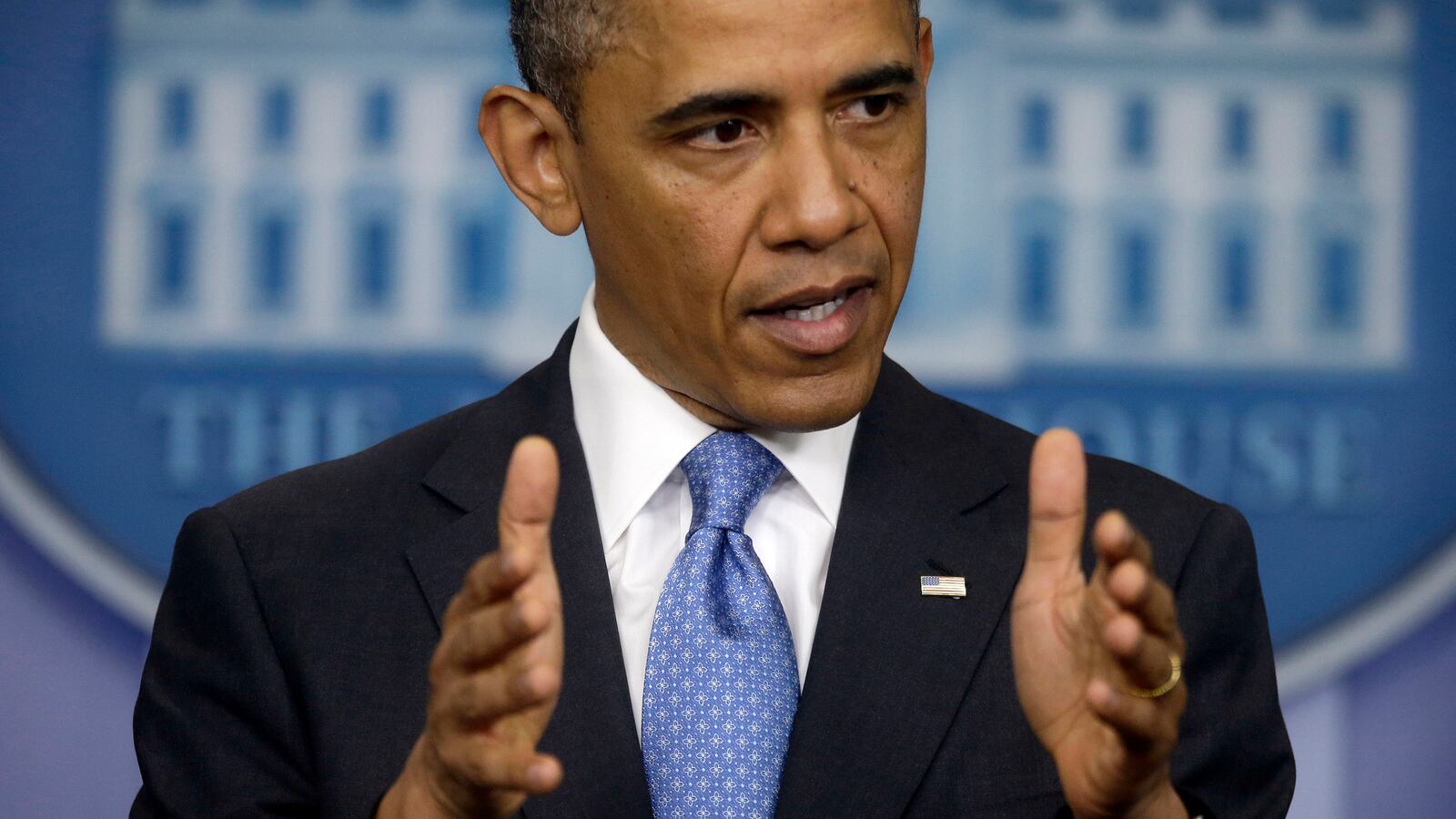
How many Middle East quagmires does America want? How many can it afford? After our so-called triumphs in Iraq and Libya – and our not-so-triumphant 12-year experience in Afghanistan – the siren song of Syria now beckons. Mr. President, resist that call. We are not wanted there; America has no need to go there. Think Viet Nam, without a Cold War to offer as rationale for our presence. Indeed, those who urge you to go there never voted for you, and that should tell you something about your future base of support when things head south. Yes, we are actually in the curious situation where the American and Arab publics are united on a key issue: Don’t go to Damascus.
Both American opinion and the Arab Street are unified in their opposition to U.S. involvement.
So what was President Obama thinking when he declared last summer, in a moment of rhetorical folly, that the use of chemical weapons would violate an imagined “red line?” As Leslie Gelb made clear, the region has more than 30 years experience with chemical weapons, which the Reagan Administration treated as business as usual. Ruthless realpolitik? Sure. But effective.
The facts on the ground are anything but auspicious for America injecting itself into an intra-Arab morass. Sunni leaders are divided between those sympathetic to the politics of the Muslim Brotherhood, such as Qatar and NATO ally Turkey, and Middle East monarchies such as Saudi Arabia. All oppose Assad, yet each backs a different camp in Syria. As a senior American official put it, “there is no coherent Arab coalition.”
Against this backdrop of disapproval and disarray, toppling the Assad regime and securing Syria’s chemical weapons would be a major military undertaking – requiring 75,000 troops, according to the Pentagon. Imagine American boots on the ground, hunting for weapons of mass destruction that we can’t account for right now. In Iraq, we went looking for WMD – which proved to be non-existent – but at least we weren’t looking for them back in ’03 and ’04, in the middle of a civil war.
In Syria, the war would likely still be raging. And if we needed to put down the civil war first, we’d need a lot more than 75,000 soldiers. In Iraq, we initially deployed 67,000 troops and watched that number swell to over 157,000. In the absence of broad regional support in the form of an Arab League army and a heavy Turkish military contribution, America would be left with the unenviable tasks of imposing order upon chaos, and then navigating its own perilous exit, with no defined end game and no easy way out. We have seen this movie before.
In Syria, a ruling Alawite minority emboldened by Shia Iran is embroiled in a religious and tribal steel cage match with Syria’s demographically dominant Sunni population, which is aided in part by Al-Qaeda. And if America went it alone, it would likely be a prelude to another dismal episode in nation-building, one that leaves Jordan’s monarchy trembling and Egypt’s Morsi smirking. For the record, Iraq cost nearly 4,500 dead Americans, 32,000 wounded, and between $4 and $6 trillion, a price tag that should make Obama pause for more than just a moment.
Exhortations by Paul Wolfowitz – a key architect of the Iraq War and a senior Rumsfeld deputy – to provide “moral support” to the Syrian rebels as an excuse for deepened U.S. involvement in Syria should be ignored like rain falling on a duck’s back.
Wolfowitz and his minions would do well to internalize the latest Pew Poll, which shows a Middle East that simultaneously clamors for democracy, the imposition of Sharia law and severe punishment for those who leave the faith. Indeed, nearly three-in-ten Egyptian Muslims view suicide bombings as situationally justified -- and they aren’t even being occupied. Heck, unless I missed it in the newspapers, Iraq and Libya have yet to express their condolences over the Boston Marathon Bombings.
Wolfowitz offers no reason to believe that Syrians want to be anything other than Syrians, much as the Vietnamese had no desire to be anything other than Vietnamese. Morality? Good luck with that. Hearts and minds? You have to be kidding. Limited engagement or a no-fly zone? Think military advisors, the Gulf of Tonkin Resolution and mission creep. The Middle East? “It’s Chinatown.”
If the Iraq War teaches us anything, it is that America does a poor job of regime change and an even worse job of societal transformation. Indeed, if Obama ventured to go there, few people on the Hill would have his back. John McCain and Bill Kristol? Don’t hold your breath.
In light of the recent Iraqi debacle and the Libya fiasco, Obama should be credited for pulling back and blurring his “red line,” and appearing to return to the politics of realism that marked his 2008 presidential campaign and appointing national security hands who share that world view. Leon Panetta, and Bush ’41 hands Robert Gates and Chuck Hagel, are marked improvements over Rumsfeld, Wolfowitz and Cheney – who predicted that Iraq could be fought on the cheap, and that we would be treated as heroes while we made the world anew.
Realism here dictates that America stand back and watch what happens in Syria. Sociologists call it tertius gaudens, roughly translated as rejoicing third, which means when you are on the sidelines as two guys brawl, smile, because you are not in the middle of it. That rule applied to the Iraq-Iran War and it applies these days to Syria’s Civil War. America, stay out because this is as good as it’s going to get.





